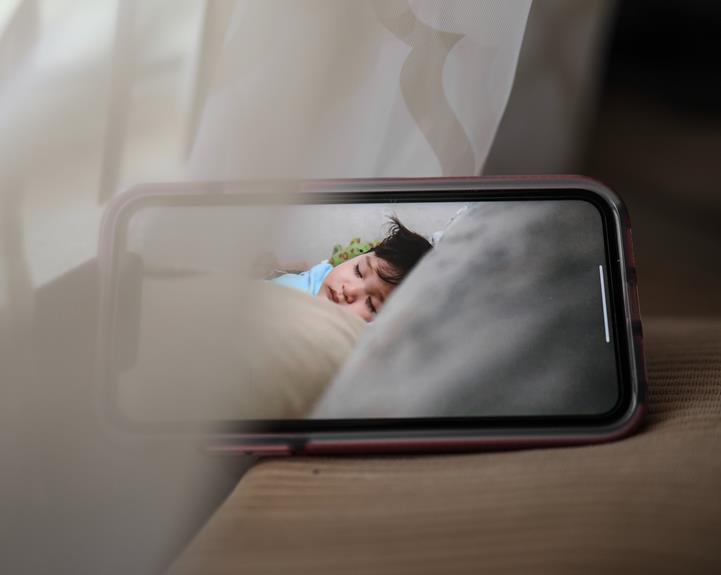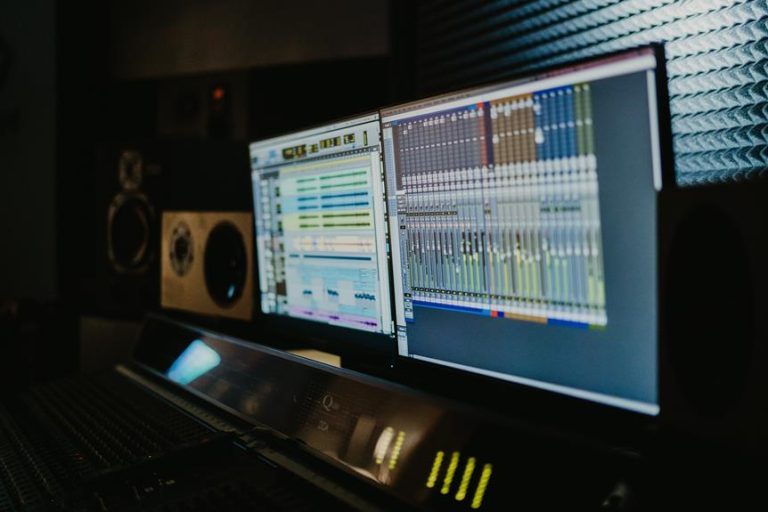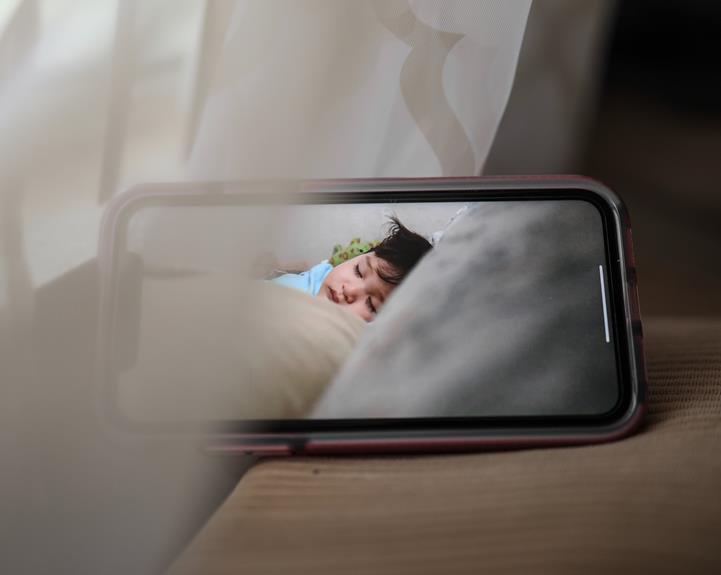Do You Need a Baby Monitor

In today's fast-paced and technology-driven world, parents have access to an array of gadgets and devices aimed at making their lives easier and ensuring the safety and well-being of their little ones. One such device is the baby monitor.
But do you really need one? The answer may not be as straightforward as it seems. While baby monitors can provide peace of mind and convenience, there are also potential drawbacks and alternatives to consider.
So, before you make a decision, let's explore the various factors and considerations surrounding the use of baby monitors.
Safety Concerns and Peace of Mind
When it comes to baby monitors, ensuring safety and providing peace of mind are of utmost importance. As parents, we want nothing more than to keep our little ones safe and secure at all times. A baby monitor can play a crucial role in achieving this goal.
One of the primary safety concerns that baby monitors address is the ability to constantly keep an eye on your baby, even when you are not in the same room. With advanced technology and features like video monitoring, you can visually observe your baby's movements, ensuring they are sleeping soundly and without any disturbances.
Additionally, baby monitors often come equipped with sound sensors that detect even the slightest noises coming from the nursery. This feature helps alert parents to any potential issues or emergencies, such as a baby crying or sounds of distress.
Having a baby monitor provides peace of mind for parents, allowing them to have the freedom to move around the house or engage in other activities while still being able to monitor their baby's well-being. This newfound freedom can help reduce stress and anxiety, knowing that you can keep a close watch on your baby at all times.
Monitoring Your Baby's Sleep Patterns
To effectively monitor your baby's sleep patterns, it is essential to have a reliable and feature-rich baby monitor. A baby monitor with sleep tracking capabilities can provide valuable insights into your baby's sleep routine, helping you identify patterns and make informed decisions about their sleep schedule.
A good baby monitor should have features such as motion sensors, temperature monitoring, and sound detection. These features allow you to track your baby's movements, ensure they are sleeping comfortably, and be alerted to any disturbances or changes in their sleep environment. Some monitors even offer advanced features like sleep analysis, which can provide detailed information about your baby's sleep patterns, including the duration and quality of their sleep.
By monitoring your baby's sleep patterns, you can establish a consistent sleep routine that promotes healthy sleep habits. It allows you to identify any issues or disruptions to their sleep, such as nighttime awakenings or irregular sleep cycles, and take appropriate action to address them. Additionally, tracking your baby's sleep patterns can help you determine the best time to put them down for naps or bedtime, ensuring they get the right amount of rest they need.
Investing in a reliable and feature-rich baby monitor can provide you with the freedom to monitor your baby's sleep patterns without constantly checking on them physically. With the right monitor, you can gain valuable insights into your baby's sleep routine and make informed decisions to promote healthy sleep habits.
Preventing Accidents and Ensuring Baby's Well-Being
When it comes to preventing accidents and ensuring the well-being of your baby, implementing safety measures is essential.
Baby monitors play a crucial role in constant monitoring, allowing parents to keep a close eye on their little ones at all times.
With the benefits of real-time video and audio monitoring, parents can promptly respond to any potential dangers or discomforts, ensuring their baby's safety and well-being.
Safety Measures for Baby
Ensuring the safety and well-being of your baby is of utmost importance for every parent. To prevent accidents and ensure your baby's well-being, here are three essential safety measures:
- Babyproofing your home:
- Make sure to secure cabinets
- Cover electrical outlets
- Install safety gates
- Anchor heavy furniture to prevent accidents such as falls, choking, or electrical shocks
- Remove any small objects or potential hazards from your baby's reach
- Supervision:
- Always keep a close eye on your baby, especially during bath time, mealtime, or when they are playing
- Never leave them unattended on changing tables, beds, or other elevated surfaces
- Avoid placing them near open windows or unsecured stairs
- First aid knowledge:
- Learn basic first aid techniques like CPR and how to handle choking situations
- Keep a fully stocked first aid kit at home
- Know the emergency contact numbers in case of any accidents or emergencies
Benefits of Constant Monitoring
In order to maintain a safe environment for your baby and prevent accidents, constant monitoring plays a crucial role in ensuring their well-being. By keeping a close eye on your baby through a baby monitor, you can detect any potential dangers or hazards that may arise. Here are some benefits of constant monitoring:
| Benefits of Constant Monitoring | Explanation |
|---|---|
| Preventing Accidents | Continuous monitoring allows you to identify and address potential dangers such as falling or choking. |
| Ensuring Baby's Well-Being | Monitoring your baby's activities and behavior helps ensure they are comfortable, healthy, and happy. |
| Immediate Response | With constant monitoring, you can quickly respond to your baby's needs, providing them with timely care. |
| Peace of Mind | Knowing that you can keep an eye on your baby at all times provides a sense of security and freedom. |
Constant monitoring through a baby monitor empowers parents to create a safe and nurturing environment for their little ones, granting them the freedom to attend to other responsibilities while ensuring their baby's well-being.
Remote Access and Convenience
When it comes to baby monitors, one of the key features that parents look for is remote monitoring capabilities. Being able to access the baby monitor from a distance allows parents to check on their baby's well-being without having to physically be in the same room.
This convenience offers peace of mind and allows parents to go about their daily tasks while still keeping a watchful eye on their little one.
Additionally, modern baby monitors are designed to be user-friendly, making it easy for parents to set up and navigate the various functions, further enhancing the convenience factor.
Remote Monitoring Capabilities
Remote monitoring capabilities provide convenient access to keep an eye on your baby from anywhere in the house. With the advancement of technology, modern baby monitors offer a range of features that make monitoring your baby easier and more convenient than ever before. Here are three ways that remote monitoring capabilities enhance your experience:
- Real-time video streaming: Many baby monitors now come with a camera that allows you to see a live video feed of your baby on your smartphone or tablet. This enables you to check on your baby's well-being without having to physically be in the room.
- Two-way audio communication: Remote monitoring capabilities also include two-way audio, which means you can not only hear your baby but also talk to them. This feature is particularly useful for soothing your baby from a distance or singing them a lullaby.
- Smartphone compatibility: Most baby monitors now come with a dedicated mobile app that allows you to access the monitor's features from your smartphone. This means you can monitor your baby while doing other tasks around the house or even when you're away from home.
With these remote monitoring capabilities, you can enjoy the freedom of being able to keep an eye on your baby no matter where you are in the house.
Ease of Use
With the convenience of remote monitoring capabilities, parents can effortlessly keep an eye on their baby's well-being from anywhere in the house.
Baby monitors equipped with remote access allow parents the freedom to move around their home without sacrificing their ability to monitor their baby. Whether they're in the living room, cooking in the kitchen, or even outside in the garden, parents can easily check on their little one with just a glance at their device.
This level of convenience provides parents with peace of mind and allows them to complete tasks around the house while still keeping a close watch on their baby.
The ease of use provided by remote access features makes baby monitors an essential tool for busy parents who desire freedom and flexibility.
Peaceful Sleep for Parents
Parents can achieve a restful night's sleep with the assistance of baby monitors. These devices provide peace of mind by allowing parents to monitor their baby's sleep without constantly having to check in physically. Here are three ways baby monitors can contribute to a peaceful sleep for parents:
- Continuous monitoring: With a baby monitor, parents can keep an eye on their little one throughout the night, even from a different room. This constant monitoring helps reassure parents that their baby is safe and sound, reducing the need for frequent visits to the nursery.
- Alerts and notifications: Many baby monitors come equipped with features that alert parents if their baby wakes up or if there are any changes in their breathing patterns. This allows parents to respond promptly without having to stay awake all night. By receiving notifications, parents can enjoy uninterrupted sleep while still being aware of their baby's needs.
- Two-way communication: Some baby monitors have a two-way communication feature that allows parents to soothe their baby remotely. This means that if the baby stirs or becomes unsettled, parents can use the monitor to talk to their baby or play soothing sounds without having to physically enter the room. This feature can be especially useful in preventing unnecessary wake-ups and promoting a peaceful sleep environment for both baby and parents.
Potential Drawbacks and Over-Reliance
While baby monitors can provide peace of mind and convenience for parents, it is important to be aware of the potential drawbacks and over-reliance on these devices. While they can be helpful tools, relying too heavily on baby monitors can hinder parents' ability to develop their own instincts and confidence in caring for their child. Here are some potential drawbacks and over-reliance issues to consider:
| Potential Drawbacks | Over-Reliance |
|---|---|
| False Alarms: | Reduced Interaction: |
| Baby monitors can sometimes pick up false alarms, causing unnecessary anxiety and sleep disruption for parents. | Relying solely on a baby monitor can lead to reduced interaction between parents and their baby, potentially affecting the parent-child bond and the baby's emotional development. |
| Technical Issues: | Dependency: |
| Baby monitors can experience technical glitches, such as loss of signal or interference, which can be frustrating for parents. | Over-reliance on a baby monitor can create a sense of dependency, making it difficult for parents to feel comfortable leaving their child in the care of others or when away from home. |
| Privacy Concerns: | Sleep Disruption: |
| Baby monitors transmit audio and sometimes video, raising privacy concerns for some parents who may worry about their child's information being intercepted. | Constantly monitoring the baby's every sound and movement can disrupt parents' sleep, leading to fatigue and decreased overall well-being. |
While baby monitors can be valuable tools for ensuring a child's safety, it is important for parents to strike a balance between utilizing these devices and developing their own parenting skills. It is crucial to use baby monitors as aids rather than substitutes for active parenting, ensuring that parents remain engaged and present in their child's life.
Alternatives to Baby Monitors
To enhance the safety and well-being of their child, parents have a range of alternatives to consider in addition to baby monitors. While baby monitors can be helpful in keeping an eye on your little one, there are other options available that can provide similar benefits.
Here are three alternatives that parents can consider:
- Video surveillance systems: Instead of relying solely on a baby monitor, parents can opt for a video surveillance system that allows them to monitor their child from anywhere in the house. These systems often come with multiple cameras that can be placed in different rooms, providing a comprehensive view of your child's activities.
- Smart home technology: Many parents are now turning to smart home devices as an alternative to traditional baby monitors. With the help of smart speakers and cameras, parents can monitor their child's room and receive alerts if any unusual activity is detected. Some devices even have features like temperature and humidity sensors, ensuring your child's comfort and safety.
- Wearable devices: Another alternative to baby monitors is the use of wearable devices. These devices, like smartwatches or smart bands, can be worn by the child and provide real-time updates on their vital signs, sleep patterns, and movement. This can be particularly useful for parents who want to keep a close eye on their child's health and well-being.
Factors to Consider Before Purchasing a Baby Monitor
When considering the purchase of a baby monitor, it is essential to take into account several factors to ensure that you choose the most suitable option for your specific needs. With so many different models and features available on the market, it can be overwhelming to make a decision. To help simplify the process, here are five key factors to consider before purchasing a baby monitor:
| Factor | Description | Considerations |
|---|---|---|
| Range | The distance over which the baby monitor can transmit audio and video signals. | Consider the size of your home and whether you need the monitor to work outdoors or in multiple rooms. |
| Audio vs. Video | Decide whether you want a monitor that only provides audio or one that also includes video capabilities. | Video monitors allow you to see your baby, but audio monitors are often more affordable. |
| Connectivity | Look at the type of connection the monitor uses to transmit signals. | Some monitors use Wi-Fi, while others rely on radio frequencies. Consider your home's Wi-Fi strength and potential interference from other devices. |
| Battery Life | Consider how long the monitor's batteries last before needing to be recharged or replaced. | Longer battery life is especially important if you plan to use the monitor for extended periods or during travel. |
| Additional Features | Take into account any additional features that may be important to you. | These could include night vision, temperature monitoring, two-way communication, or smartphone app compatibility. |
Frequently Asked Questions
How Do Baby Monitors Ensure the Safety of a Baby?
Baby monitors ensure the safety of a baby by providing real-time audio and video monitoring, allowing parents to hear and see their baby's activities. This enables them to quickly respond to any potential dangers or emergencies.
Can a Baby Monitor Help in Preventing Accidents in the Baby's Room?
A baby monitor can help prevent accidents in a baby's room by providing real-time audio and video monitoring. This allows parents to quickly respond to any potential dangers, reducing the risk of accidents and ensuring the safety of their child.
What Are Some Alternative Options to Using a Baby Monitor for Monitoring a Baby's Sleep Patterns?
When considering alternative options to using a baby monitor for monitoring a baby's sleep patterns, there are a few practical choices to consider. These include using a video surveillance system, using a wearable device, or simply relying on your own observation skills.
What Factors Should Be Considered Before Purchasing a Baby Monitor?
Before purchasing a baby monitor, it is important to consider factors such as the range of the monitor, the clarity of the audio and video, additional features like temperature monitoring, and the overall reliability and durability of the device.
Are There Any Potential Drawbacks or Risks Associated With Relying Too Much on a Baby Monitor?
Relying too much on a baby monitor can have potential drawbacks and risks. It may create a false sense of security, hinder a parent's ability to respond intuitively to their child's needs, and lead to increased anxiety or dependence on technology.
Conclusion
In conclusion, while baby monitors can provide peace of mind and convenience for parents, it is important to consider their limitations and potential drawbacks. They can be helpful in ensuring your baby's safety and well-being, monitoring sleep patterns, and providing remote access.
However, it is also important not to rely too heavily on them and to explore alternative ways of monitoring your baby. Ultimately, the decision to use a baby monitor should be based on individual circumstances and preferences.
Like a trusted companion, a baby monitor can provide support but should not replace parental instincts and presence.




